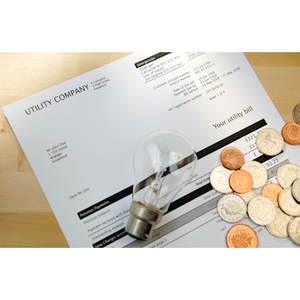Time to Save By Switching Energy Suppliers
Time to Save By Switching Energy Suppliers
It's that time of year already. It's getting colder, darker, and we're strapping ourselves in for several months of winter chill. And before we've hardly begun, there's already an outpouring of concern about energy bills.
Depending on which poll you read, there's varying degrees of panic out there at the moment.
MoneySuperMarket says that 69% of bill payers are worried about the cost of winter fuel, while Citizens Advice says 78% of people are concerned about winter fuel bills.
For some, though, the situation is already ominous. New research shows that one in ten customers owe their energy supplier an average of £240, and very few are willing to contact their supplier to admit they are in trouble.
So, as we approach the long winter ahead of us, it's clear that we need to be more conscious than ever of ways to reduce our energy bills.
Energy Saving
Tips on saving energy around the home are a great start. Cutting your fuel consumption and improving your energy efficiency (through the use of a smart meter, for example) is entirely in your own hands.
With a little bit of effort and application, British Gas estimates that it's possible to knock around £75 off your energy bills.
Switching Suppliers
But could you be saving more substantial sums by switching your supplier?
We're strangely reluctant to switch energy suppliers – it's like an institution that we're landed with. Perhaps that's not surprising when we consider how incredibly cumbersome the process can be. It can take up to EIGHT weeks to switch suppliers. Bizarrely, that's longer than it takes to exchange contracts on a mortgage!
But this is about to change. Ofgem, the much-maligned energy watchdog, said that faster switching should be in place by the end of 2014. And though it's unlikely that everyone will be co-operating by then, energy giant SSE has introduced faster switching this week, in the hope of snaring customers before the big freeze sets in.
What this does is sparks major competition in the market. We saw it with current accounts once the new seven-day switch system kicked in – people are flocking towards banks that are offering interest, bonuses and cashback.
Energy companies are already getting itchy. E.ON, rarely one to lead on pricing, last week slapped a market-leading new tariff on the table. Provided that you opt out of paper statements and pay by direct debit, the new tariff (Fixed 1 Year v12) is estimated to cost the average dual fuel customer £965 per year.
This, in turn, prompted a response from the smaller provider, Extra Energy, which has launched an online tariff which will cost the average UK household £974 per year. Extra is one of the trio of smaller providers that customers have been flocking to this year, along with First Utility and Ovo Energy.
It's a frequently banded figure that switching suppliers could save customers up to £250 on an average £1,200 energy bill (equal to 21%), and that's getting pretty close to the mark.
It's going to get easier to switch over the coming year, and it's well worth thinking about whether it's worth ditching your allegiance to a cheaper deal as the winter sets in.
Agreeing a Payment Plan
One of the snags of switching suppliers, of course, is that your current supplier has to agree for you to leave. And that's complicated if you're in arrears with your bills.
A good number of customers desperately want to ditch their supplier but have been unable to because they owe too much money on their bills.
What's important here is to brave it up and admit to your supplier that you're having difficulties in making repayments.
Under Ofgem rules, suppliers are obliged to help you arrange a payment plan that you can manage. If you hit rock bottom, or find that your issues require elevation at a later stage, you'll have helped yourself enormously by opening up a dialogue with your supplier at first opportunity.
There are further advantages of doing so as well. Not only does it improve the chances of reducing your bills to a point where you can agree to switch elsewhere, but it also reduces the temptation of resorting to costlier forms of credit – overdrafts, credit cards or payday loans – to keep your lights on.
If you're interested in finding out more, why not compare gas and electricity tariffs today and see if you could save by switching suppliers?

